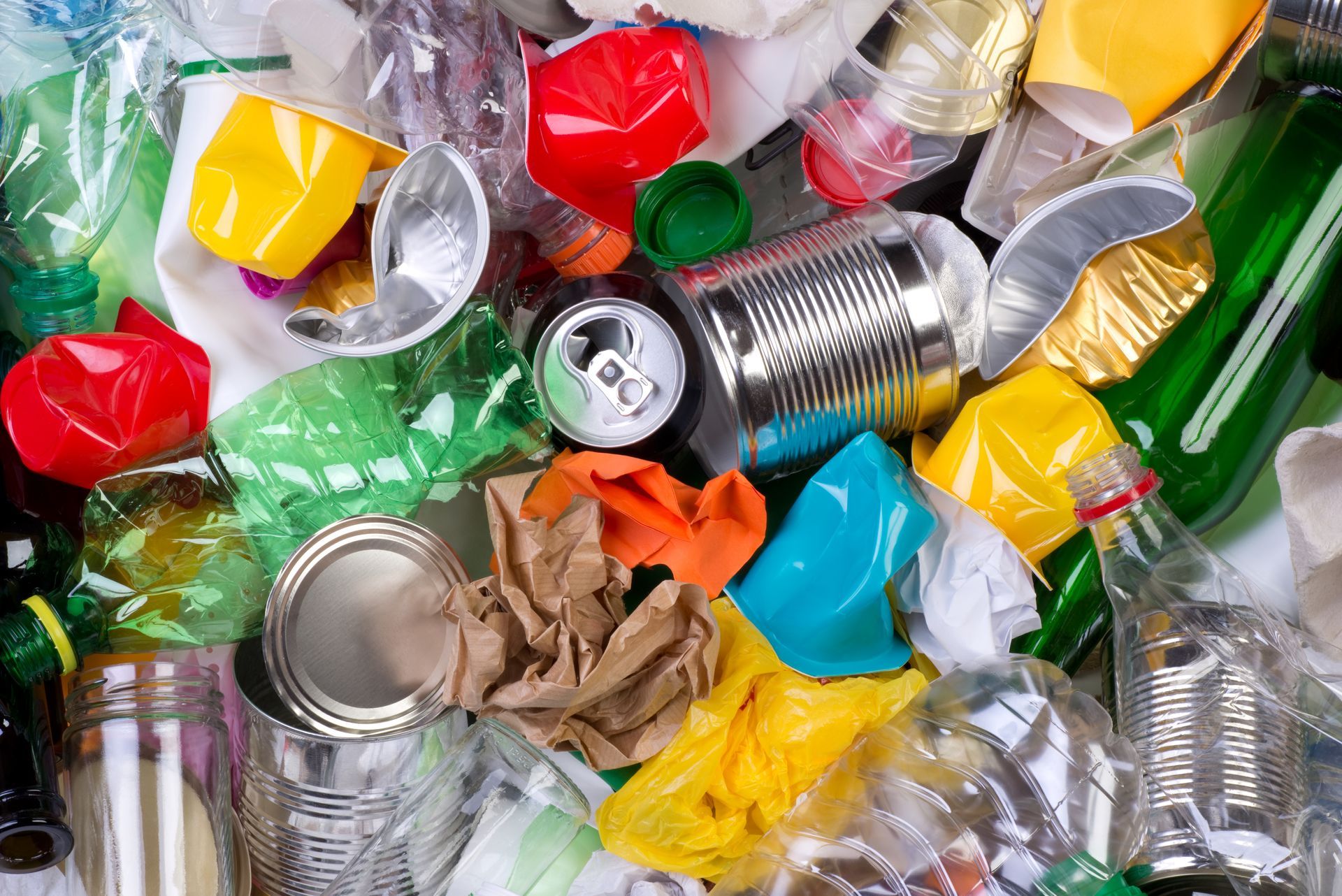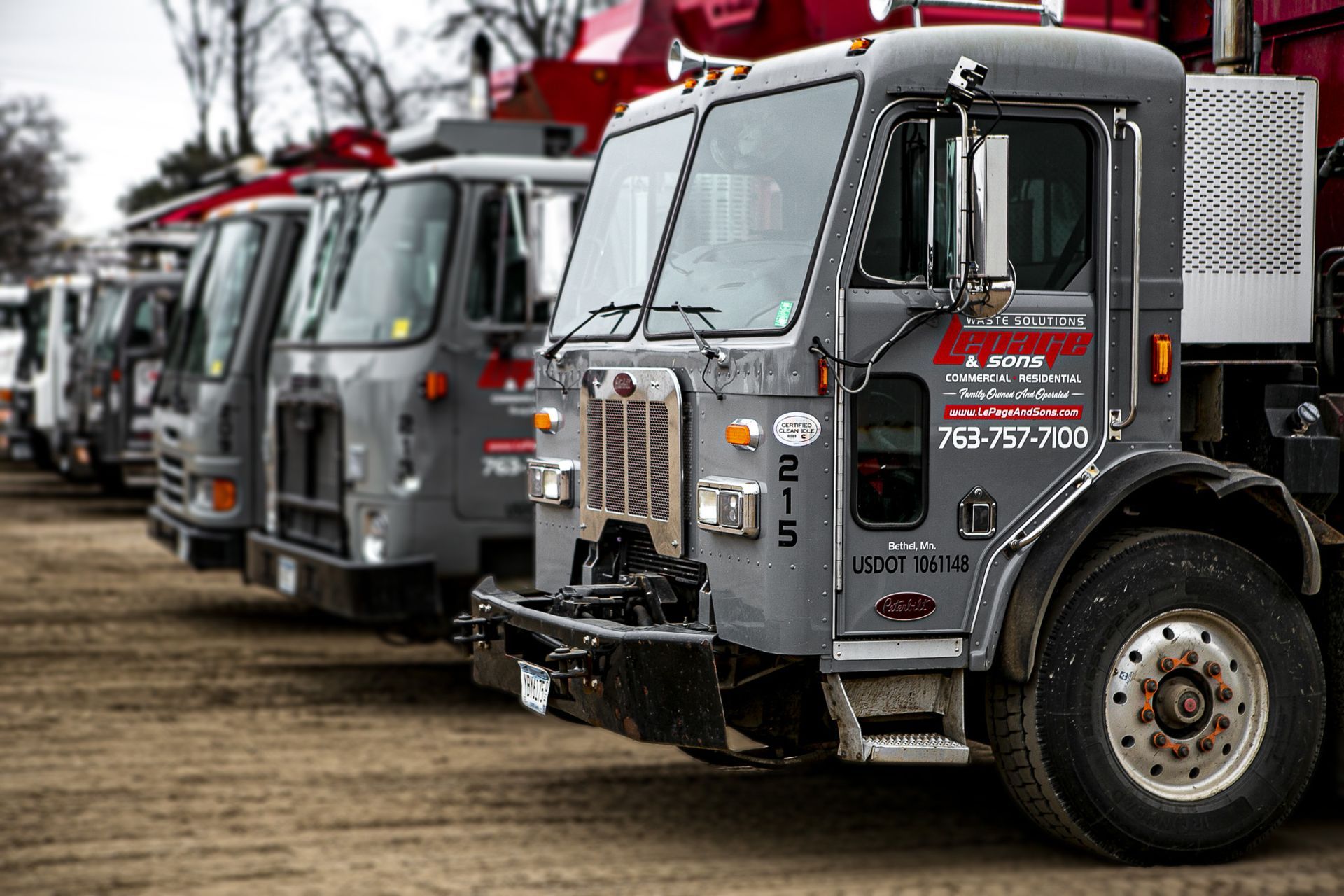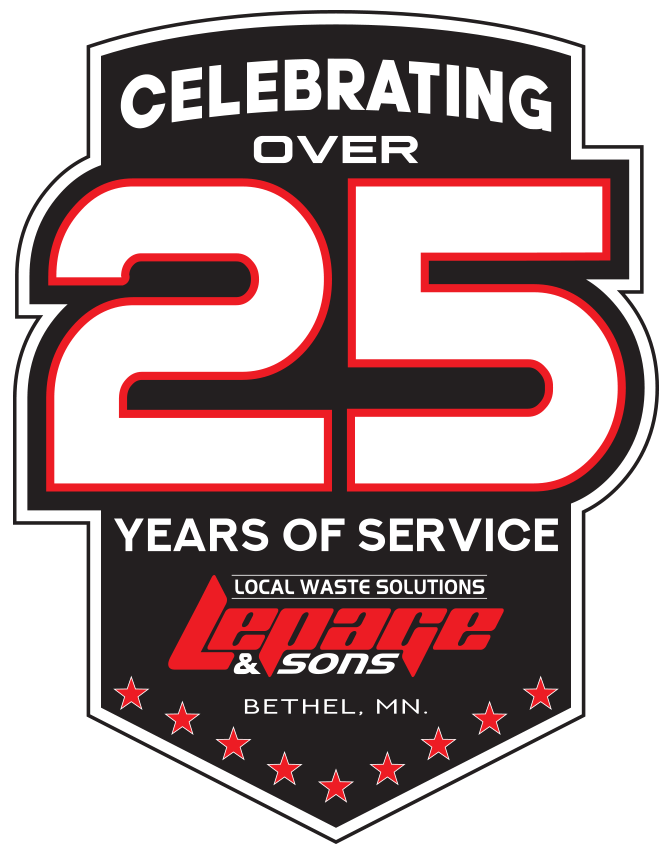Recycle tips: Household Items You Should Be Recycling
October 28, 2024
Jacqueline McGreevey
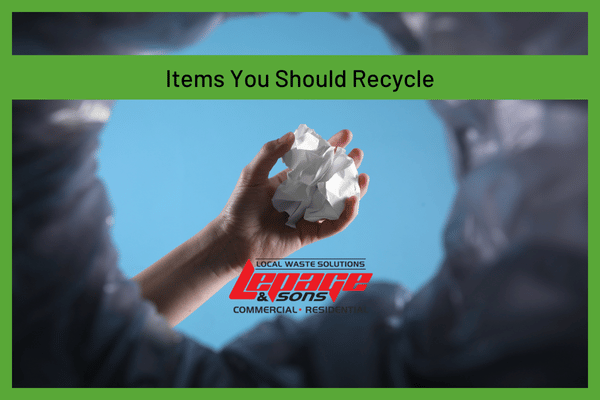
Recycling is one of the simplest and most effective ways to reduce waste, conserve natural resources, and protect the environment. While many of us are familiar with recyclable paper and plastic, there are several common household items that should also be recycled but often get overlooked. In this article, we’ll highlight the household items you should be recycling, explain how to recycle them properly, and provide tips to help make your home more eco-friendly.
1. Paper Products Recycling
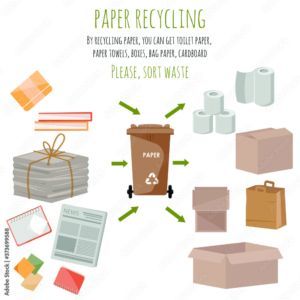
Paper products are among the easiest household items to recycle. Whether it’s junk mail, office paper, or cardboard, recycling paper helps conserve trees and reduce the energy needed to produce new paper products. Here are some paper items you should always recycle:
- Junk mail and newspapers: Junk mail, magazines, and newspapers are recyclable as long as they are clean and free from plastic or wax coatings.
- Cardboard boxes: Flatten boxes from online shopping or product packaging to save space in your recycling bin.
- Paperboard: Recycle cereal boxes, paper towel rolls, and other paper-based packaging materials.
Be sure to remove any plastic, metal, or wax coatings from paper products, and ensure that they are free from food contamination.
2. Recycle Plastic Bottles and Containers
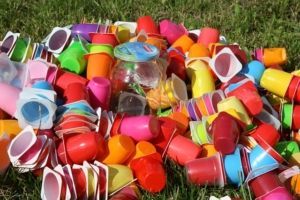
Plastics make up a large portion of household waste, but not all plastics are recyclable. Focus on recycling plastics labeled with the #1 (PET) and #2 (HDPE) recycling codes, which are the most commonly accepted in curbside recycling programs. Some examples include:
- Beverage bottles: Water bottles, soda bottles, and juice containers should be rinsed out before recycling.
- Jugs and containers: Milk jugs, laundry detergent bottles, and shampoo bottles can also be recycled as long as they are cleaned and dried.
Check your local recyclable guidelines to confirm which plastics are accepted in your area, as some facilities may not accept certain types of plastic packaging, such as plastic bags or film wrap. Instead, these can often be recycled at designated grocery store drop-off points.
Find out more about recycling plastic bags and wraps.
3. Recycle Glass Bottles and Jars
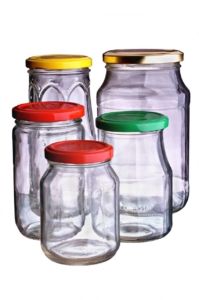
Glass recycle is important because it can be recycled endlessly without losing quality or purity. Most curbside recycling programs accept glass bottles and jars, but there are a few things to keep in mind:
- Glass beverage bottles: Soda, beer, and wine bottles can all be recycled once they are rinsed and free of labels, caps, and corks.
- Food jars: Jars from sauces, jams, and other food items are also recyclable but should be washed clean before recycling.
However, avoid placing broken glass, window panes, or mirrors in your recycling bin, as these require special handling. Additionally, some recycling programs may not accept certain colored glass, so always check your local guidelines.
Learn more about glass recycling from the EPA.
4. Recycle Metals: Aluminum and Steel
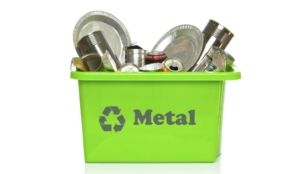
Metal is one of the most valuable recyclable materials and can be recycled indefinitely. Common household metal items include:
- Aluminum cans: Soda and beer cans are easily recyclable and should be rinsed out before being placed in the bin.
- Steel cans: Food cans, such as those for soup, vegetables, or pet food, can also be recycled after being rinsed.
Make sure to remove any non-metal parts like paper labels, plastic caps, or lids before recycling. When you recycle metals, it helps reduce the need for new raw materials, significantly conserving energy and resources.
Learn more about recycling aluminum and steel cans.
5. E-Waste: Electronics and Batteries Recycling
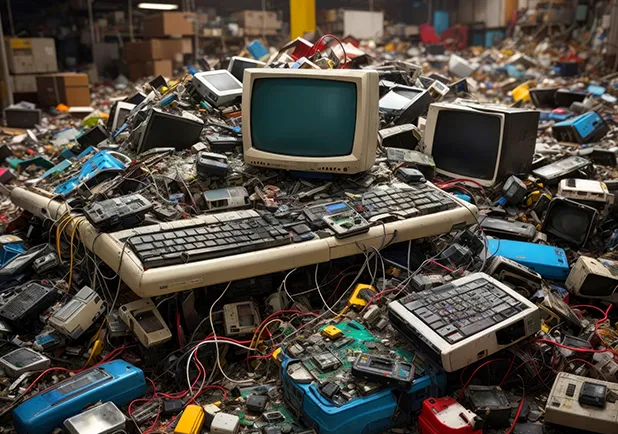
Electronics, such as old phones, computers, and batteries, are not accepted in standard recycle bins but can be recycled through designated e-waste programs. It’s important to dispose of e-waste properly, as these items often contain hazardous materials like lead, mercury, and cadmium, which can harm the environment if not handled correctly.
Here’s what you can recycle through e-waste programs:
- Old electronics: Phones, laptops, televisions, and other small appliances can be dropped off at e-waste recycling centers or designated electronics recycling events.
- Batteries: Many home batteries, such as AA, AAA, and rechargeable batteries, can be recycled at special collection points found in stores or designated recycling centers.
Contact your local recycling provider or visit an e-waste collection center to properly recycle electronics and batteries. Learn more about recycling electronics from the EPA.
6. Disposing Of Household Hazardous Waste
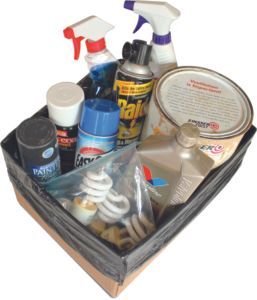
Certain household items, such as paint, cleaners, and chemicals, are considered hazardous waste and should not be placed in your curbside recycle bin. These items require special disposal methods:
- Paint and solvents: Many communities hold special hazardous waste collection events where you can safely dispose of leftover paint, solvents, and chemicals.
- Pesticides and cleaners: Products containing harmful chemicals should also be taken to a hazardous waste facility.
Improper disposal of these materials can be dangerous to the environment, so always take the time to recycle them through the proper channels.
Learn more about household hazardous waste from Earth911.
Consider Renting a Roll-Off Dumpster for Larger Jobs

If you’re tackling a major home project like a renovation or cleanout, you may generate more recyclables than your bin can handle. Renting a roll-off dumpster offers a convenient and efficient way to manage large quantities of recyclables and waste. Here are a few situations where a roll-off dumpster proves invaluable:
- Home Renovations: Renovations create large amounts of recyclable materials such as wood, metal, and cardboard packaging. A roll-off dumpster allows for bulk disposal.
- Garage or Attic Cleanouts: Cleaning out a garage, attic, or basement often results in a mix of recyclables and waste. A roll-off dumpster keeps everything organized.
- Moving: When relocating, a roll-off dumpster helps recycle boxes, paper, and other unwanted items efficiently.
- Renting a roll-off dumpster ensures responsible waste management by separating recyclables from general waste.
Make Recycling a Habit
Household items you recycle helps reduce waste and conserve resources. From paper and plastics to glass, metals, and electronics, knowing what to recycle keeps materials out of landfills and supports a healthier planet. For larger projects, a roll-off dumpster streamlines the process.
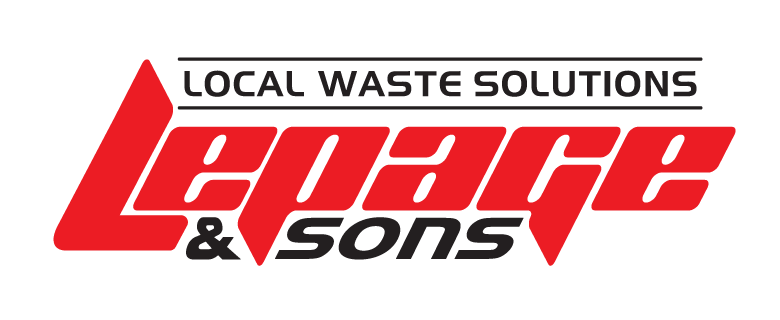
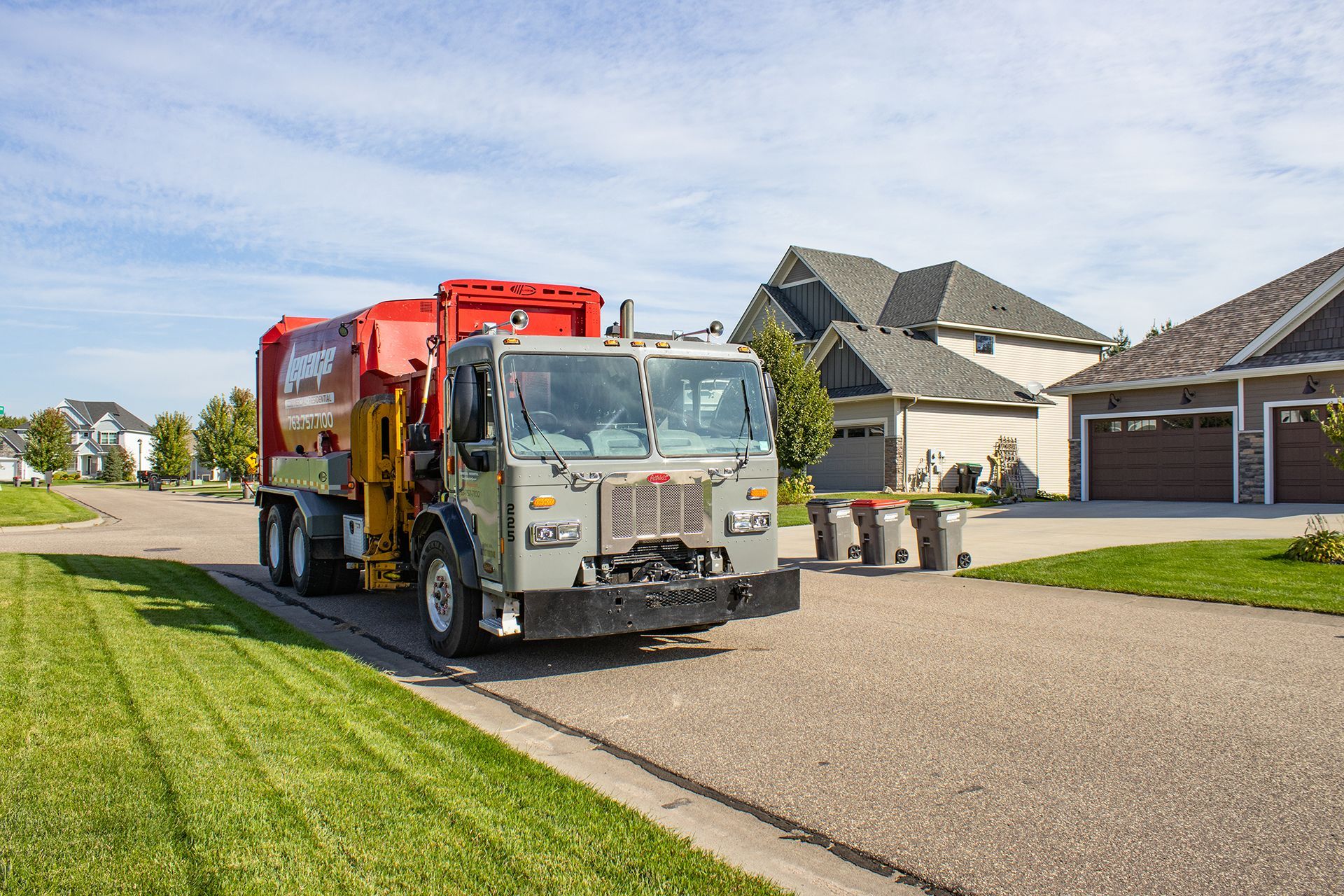

Share this article

